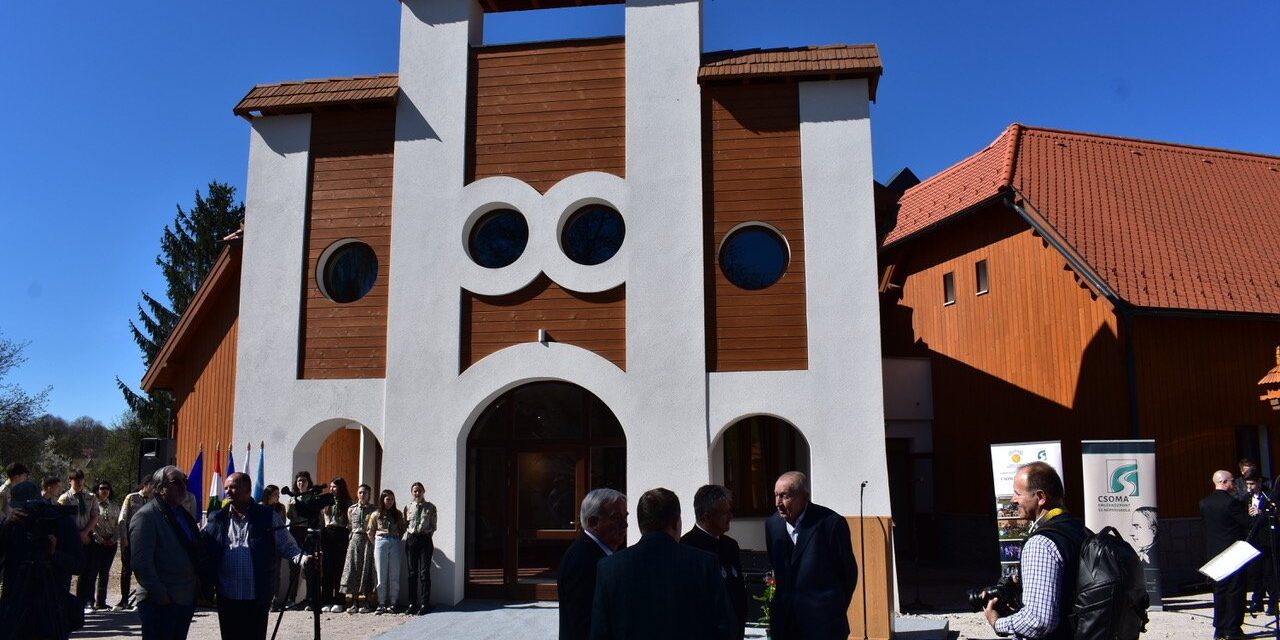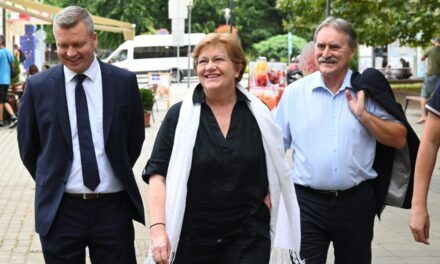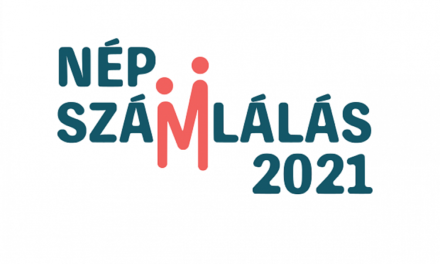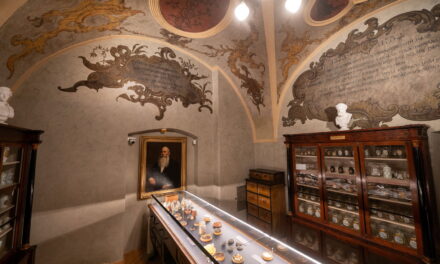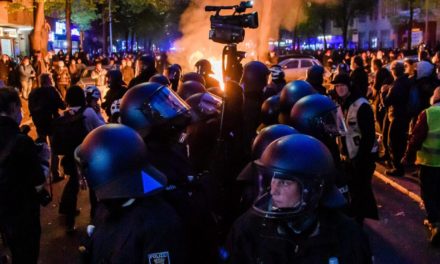Let's not only mention the coffin, but also try to rock the cradle while keeping it awake, the minister said.
Sándor Csoma Kőrösi was a bridge between East and West, and we Hungarians are also a bridge between East and West. And the bridge means: "I understand myself and I understand my environment", and thus there is a greater chance of reaching an agreement, said the Minister of Culture and Innovation on Monday at the opening of the Csoma Memorial Center and People's College in Kovászna, Székelyföld.
The idea of creating the Csoma center was formulated more than 30 years ago, its purpose is to cherish the memory of Sándor Csoma Kőrösi and pass on his spirit to the next generations.
In his celebratory speech at the opening event of the 34th Csoma Days organized on the 240th anniversary of the birth of Sándor Csoma Kőrösi, János Csák pointed out: there is much to celebrate in Hungarian culture, Hungarians have created a lot that they can rely on as individuals, as families, and as a community.
The Csoma Memorial Center is also like that, but it will be full of life when it is filled with content, when a community is also built, he added.
"If as many people as possible who come here will create. If this house radiates as much knowledge as possible, because the person who possesses knowledge will be stronger economically, stronger mentally, stronger spiritually," he underlined.
He especially greeted József Gazda, who is celebrating his 88th birthday, the honorary president of the Kőrösi Csoma Sándor Közmülwendesi Egyesület, the dreamer of the center.
He emphasized: the building is the realization of a thirty-year dream, many people worked together to build it. He emphasized: when Hungarians stick together, they are strong, and Hungarian culture is nothing more than "the fabric of our bonds". "If these ties are strong enough, then these ties form a strong culture, a thread that can withstand anything," he underlined.
János Csák recalled that Sándor Csoma Kőrösi started from the Háromszéki basin and reached the Himalayas.
"And we wouldn't be here today if we didn't stand on the shoulders of giants like Sándor Csoma Kőrösi," he said. He added that the Hungarians have a chance to succeed if they "see far in space and time". He recalled: the scientist from Transylvania knew twenty languages and was the first to create the Tibetan-English dictionary and published the Tibetan grammar.
He emphasized: the Hungarian government supports and will support the aforementioned ties and Hungarian culture to live and flourish in all corners of the Carpathian Basin and beyond.
József Gazda recalled in his speech: already in 1992, he drew attention to the fact that those who remember should not only visit the grave of Sándor Csoma Kőrösi in Darjeeling, but also his homeland.
"Let's not just mention the coffin, let's try to rock the cradle while keeping it awake, let's meet here too," he said.
He said that the memorial center, as "one of the outstandingly beautiful" buildings of the Carpathian Basin, with significant symbolic weight, speaks to humanity and will be an attraction in the region. 50,000 to 60,000 people visit the spa town of Tříszék every year, and the center is meant to transmit "the glory of the homeland" to the village of Csomakőrös, which is three kilometers away.
He underlined: not only himself, but a community "carried" his plan, since 1990 the Csoma Days have been organized, for which researchers of the Hungarian past flocked to the city, 920 lectures were given.
According to association president Éva Ferencz, the memorial center will pay off a debt of two centuries. "Csoma is the person who opens the doors to new worlds. We, his late descendants, do not think differently about ourselves either," he said.
According to Sándor Tamás, president of the Kovászna county municipality, Sándor Csoma Kőrösi "searched for the great ancestors of his country and he himself became one of our unforgettable great ancestors".
He recalled: all his life he defined himself as a Transylvanian Székely, and in this too he was "consistent, stubborn and persistent". "Székely from Transylvania was, is and always will be in this landscape," he underlined.
After an introduction by architect Lőrinc Csernyus and a greeting by Kovászna mayor József Gyerő, the building was blessed by Béla Kató, bishop of the Transylvanian Reformed Church District. He reminded that Csoma Kőrösi could not have become who he was without the teachings of his home village and the reformed college in Nagyenyed.
At the ceremony, the Csoma Memorial Medal was presented to Minister János Csák, and the exhibition Mapping Time Travel with Csoma was opened.
The idea of creating the Csoma Center was formulated more than thirty years ago, its purpose is to cherish the memory of Sándor Csoma Kőrösi and pass on his spirit to the next generations. The two-story facility, designed by the Ybl award-winning architect Lőrinc Csernyus, includes exhibition spaces, a conference room for 60-70 people, office space and five guest rooms.
From 2020, the Hungarian government took up the matter of building the center, which was built with a total of almost HUF 422 million in support on a plot donated by the local Reformed parish.
MTI
Cover image: The newly opened Csoma Memorial Center
Source: Kronika.ro/Gazda Árpád

